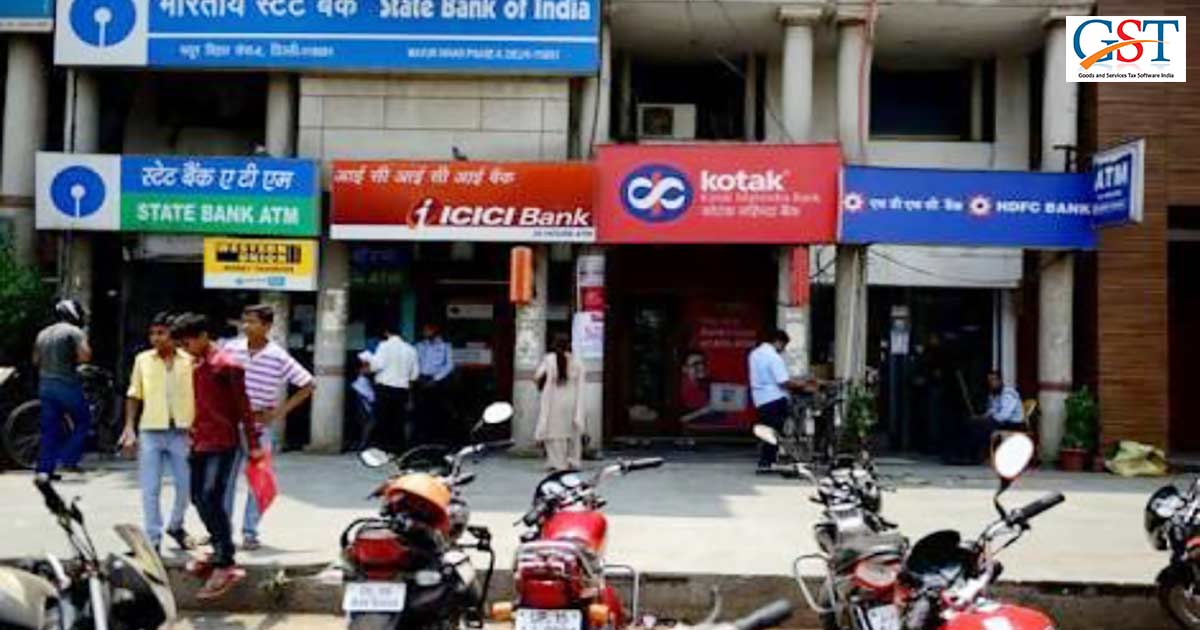GST is about to complete more than 1 and a half year, but still, people are confused between the banking services which attract GST and which are not. CBDT has come forward and explained the applicable GST levy on banking services: Here are the 7 banking services which will attract GST
Latest Update in Banking Services Under GST
- 5th January 2022: SBI, India’s largest public sector bank has declared about new Immediate Payment Service (IMPS) that INR 20 plus GST will be levied for cash transactions between INR 2 lakh to INR 5 lakh effective from 1st February 2022.
Loan Transfer
When you make the bank to transfer your loan to other banks, then you have to pay the transaction processing fee. This fee also attracts GST.
Late Payment Fee
When you do not pay a credit card bill on time, at that moment you have to pay late payment charges as well. Now, you have to pay late payment charges along with GST.
ATM Transaction
When you transact more than the prescribed limit per month on ATM usage, you have to pay approx INR 21 + 18% GST per transaction to banks. Along with this charge, you also have to pay GST. for example, if you are a customer of a bank where the per month ATM free transaction limit is 3 to 5 and you transact more than this limit, in this case, you have to pay bank charges and GST.
Late EMI Payment
When you forget to pay EMI on time, then you have to pay charges along with GST.
New Cheque Book
The banks provide limited cheque-books free of cost, but after crossing the limit it comes to the chargeable category. These charges on cheque book issuance and getting bank statements also attract GST.
Recommended: Goods and Services Tax Charges For Cheque Bounce By Banks
Closing of Bank Accounts
The State bank of India, along with most other banks in the country, has started charging GST on the closing of bank accounts. Under the new law, GST will be charged if a person closes his bank account within 1 year of opening it. However, if a person chooses to close his/her account within 14 days of opening, there will be no tax charged on the service.
The step was taken because of the high cost and time involved in opening a bank account and providing products like cheque-book and ATM. There will be no GST on the closing of Jan-Dhan Yojana and Basic saving accounts.
Insurance Policy to NRIs
Banks also charge goods and services tax on the life insurance policies issued to the NRIs (non-resident Indians). The reason being the premium received is via Non-Resident External Account. The payments are in Indian rupees and are not convertible in the foreign exchange making it eligible for tax.
